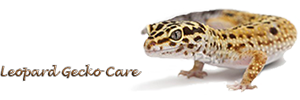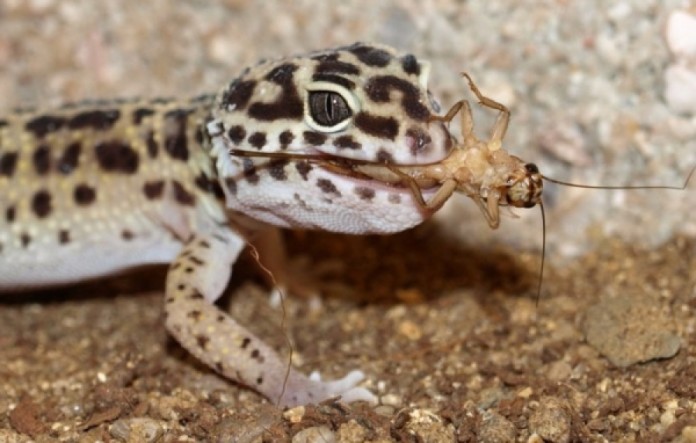In nature, leopard geckos eat insects, spiders, worms and grubs. However, in captivity, the primary foods for leopard gecko are crickets.
Leopard Gecko Main Food
If you would like to make your leopard geckos happy and healthy, then do not feed your leopard geckos with crickets all the time. Feeding geckos with waxworms and mealworms would be a good dietary plan. Size of crickets is the main problem to feeding gecko. Hatchling cannot take adult crickets, 2 week-old crickets are recommended. Adult geckos can handle all size of crickets.
If you are sourcing your crickets from pet shop, make sure the crickets are clean and healthy. If you are breeding your own crickets, make sure that you do not feed moldy food to your crickets; it will cause serious health problems.
Based on my experiences, sourcing for crickets might be a problem during the winter season. One of my recommendations is to breed your own crickets; it will make sure that your geckos have enough, clean and healthy food supplies all time. Crickets Breeding Made Simple is the best book about breeding your own crickets I’ve ever read.
Water Supplies
Even leopard geckos are dessert lizard, it doesn’t mean that they do not need drinking water. Ensure there is fresh and clean water supplied at all time. Shallow water dish is the best option. Change the water every day to prevent contaminated water with parasite and bacteria. Bottled water is better a better option than tap water as tap water might consists of chlorine and other chemicals which is not good for leopard geckos drinking.
Supplement and Vitamins
Supplement and vitamin are important factor for leopard gecko health. One of the good recommendations is supplement the diet with 1.3 ratio of herptivite to rep-cal calcium with D3. You can shake and coat the supplement and vitamins onto crickets or other prey to feed your leopard gecko. Do this every day for hatchling, and reduce the frequency the leopard geckos grow.







